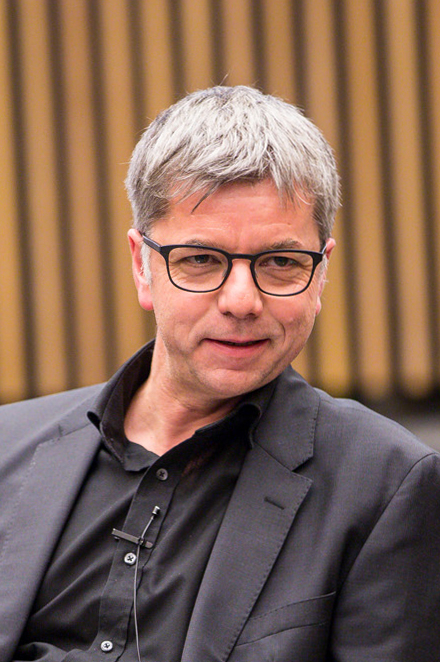The theologians Helmut Hoping and Magnus Striet are on opposite sides of the argument on Church reform. In a new book, they argue whether and which reforms are necessary in the Church – and show that the problems lie deeper than thought.
What is the future of the Catholic Church? What reforms are needed? German Catholics have been arguing about that for a long time. Since 2019, some 230 delegates – bishops, members of religious orders, scholars and representatives of associations – have been debating change in the Synodal Path reform consultations. The project is addressing what women should be permitted to do, power, the role of priests and sexual morality.
The last round of talks will take place from March 9 to 11. One sticking point is that many issues cannot be resolved in Germany but only in Rome where the official teachings of the Church are managed. Some theologians say this is why the German talks are missing the real problem – and that it first needs to be clarified which issues can be changed at all and who is allowed to do what.
The professors Helmut Hoping and Magnus Striet, conservative and liberal respectively, have been teaching together in Freiburg for many years. Although they are not taking part in the Synodal Path, they represent the substance of the conflict that keeps coming up in the consultations. They have written a 140-page treatise entitled “God, Friend of Freedom” which has now been published by Herder-Verlag. The book shows why the debate has become so deadlocked – and why voices from Rome keep ringing out in an attempt to put the Germans in their place.
The core of the problem is that theologians have been wrestling for centuries about how God makes himself known to people in the course of history – and how people can speak of God: whether this involves fixed truths or whether everything people can say about God depends on the times in which they live and what influences their thinking and speaking.
Few today doubt that dogmas, i.e. fixed statements of faith that determine doctrine, did not fall from heaven but have developed historically. Conservatives like Hoping don’t doubt that either. But he says one cannot believe in God “only hypothetically”. Faith includes the certainty that the God passed down by the Church exists. And he emphasises that it must therefore be possible to “make definitive decisions in matters of faith”.
Striet takes a different approach: he argues that Christians have had differing interpretations of the Bible from the beginning. The fact that one has settled on a certain interpretation as the only correct one must be justified. He asks who actually determines what God’s will is and who thereby claims to have the authority to interpret it.
The Church has therefore created possibilities for itself to link its claim of unchanging doctrine with the actual ruptures in faith – for example by saying that there are important and less central tenets of faith that are binding in different ways.
Striet calls for such a correction in the Catholic understanding of human freedom. This is a highly valued right in democracies today, but the Church finds it difficult to address it – even though it often claims the opposite. According to Striet, most people are no longer prepared to obey in matters of faith if they do not feel convinced by arguments.
Times have changed, the theologians both agree on that. But they differ on what should follow from this. Democratic processes cannot establish truths of faith, Hoping believes. Striet says: history shows that these truths have have always been negotiated. What Rome once decided as final is no longer convincing even to some of the bishops. This is a further reason why it is unclear what will happen next.
Originally published by KNA Germany.



